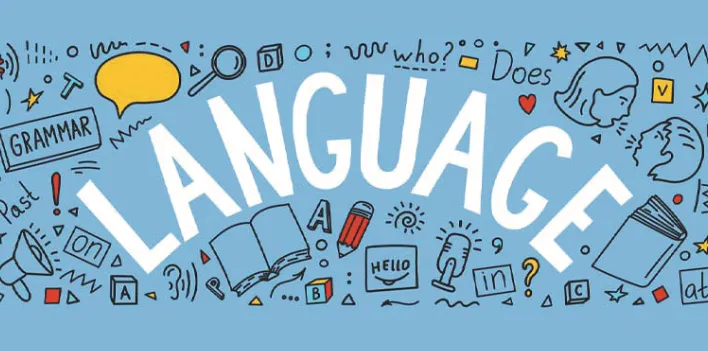“Language is the most massive and inclusive art we know, a mountainous and anonymous work of unconscious generations.” — Edward SapirLanguage is not merely a medium of communication; it is a record of a community’s history, beliefs, traditions, and identity. Language is central to how people perceive themselves, interact with others, and make a lasting connection with their land.
However, like many things deeply cherished by humans and that unite them, this too meets obstacles. Globalisation and shifting political and social dynamics cause many languages around the world to become endangered or extinct. And when a language is lost, more than just words are lost.

It means losing the unique worldview, the customs, and practices that are rooted in it.One thing that can further be argued is that loss of a language perhaps takes away the way we think. Does language inherently have the features that determine how its speakers think or is it more of a cultural construct? Does speaking English make a person less casteist? Does speaking Urdu make a person more mannered?These questions have long been discussed such as in the Sapir-Whorf hypothesis which has two versions.
A strong version called linguistic determinism hypothesises that language determines thought and thus limits what we can perceive, and a weaker version called linguistic relativity which hypothesises that language influences thought and perception but does not strictly determine them.The stronger version, that has been strongly criticised, is sometimes referred to as Whorfianism. And this “ism” simply means you can’t have or feel what your language does not have.
Say, if a community has no word for ‘future’ this theory would suggest that, for them, the concept of the future may not exist in the same way it does for others.There are so many examples that can be used to discredit this theory, but it is not all wrong. The neo-whorfianism or the weak whorfianism is unlikely to be completely discredited.
Take an example of perception of time for an Urdu speaker; aaj is today, mazi is past, mustaqbil is future. For a Kashmiri aaz is today, bronh kaal is past, and for future? There is no specific word for ‘future’ in Kashmiri. Kashmiri’s have probably been so uncertain about the future that they have not bothered to include a word for it.
Centuries of upheaval and uncertainty, be it political or otherwise, in the valley could be seen as a possible cause. ‘Lekhit’ (Preordained) is a word often used to describe the future. It is a worldview where the future is seen as predetermined.
There is also not a word for ‘thanks’ in Kashmiri and this has probably given rise to a cultural norm of ‘duas’ instead of just thanking.Sometimes words for almost all things do exist in a language but their perception is altogether different. For example the Aymara people of South America conceptualise the past as in front of them and the future behind them and for them this has resulted in preference for historical knowledge over future speculation.
Also does language simply erase some feelings if they don’t exist in that language or does it also multiply? If happiness does not exist in my language, would I feel happiness differently? Well, language apart, everyone has a different feeling of happiness. Somehow language does affect feelings.Research by Fausey and Boroditsky found that English speakers are more likely to assign blame for accidental actions whereas Spanish or Japanese speakers prefer using more passive structures.
This results in differences in how responsibility is perceived in both cultures. ‘A vase is broken’ in English but ‘A vase breaks itself’ in Japanese.Some languages with complex honorific systems such as Kashmiri encode social hierarchy in the language itself.
A person to be respected, such as an elder or a person in power, takes a different second person pronoun “tohy” and this mere pronoun instills the idea of respect. This is unlike English, where there is only one choice: You.Whether a language truly has a direct involvement with our perception or not is a continuing debate.
A scholar has a thousand points in favour and another has thousand against but what we can say for certain is that language may have a vast influence. It, however, may not be all powerful for there are thousands of forces that can take down a language. The language most discussed above -Kashmiri, my own mother tongue, is under crisis too.
It’s on the verge of glottophagy. We can say that a language dies not when a speaker stops speaking it but when its speakers start separating it from their thought. The post The Grammar of Thought appeared first on Greater Kashmir.
.
Politics

The Grammar of Thought

And when a language is lost, more than just words are lostThe post The Grammar of Thought appeared first on Greater Kashmir.














